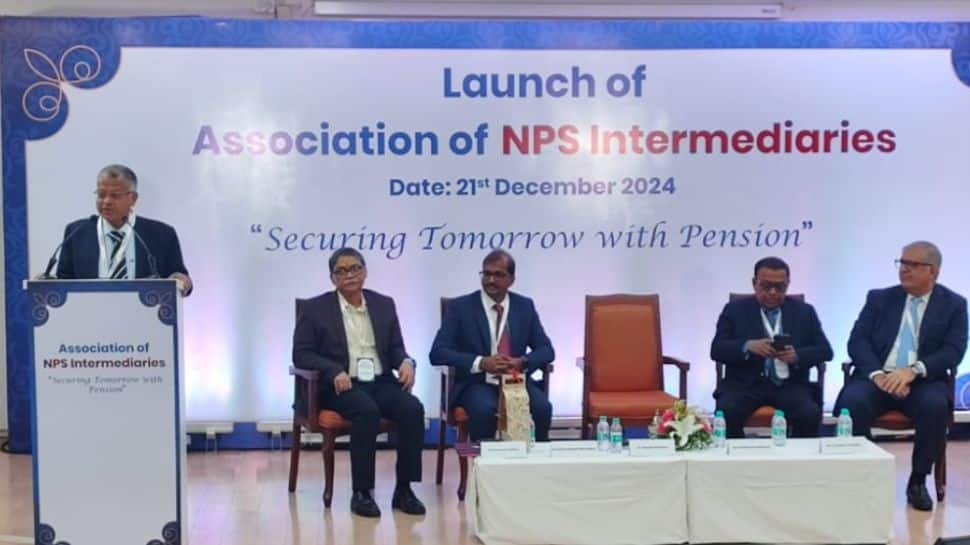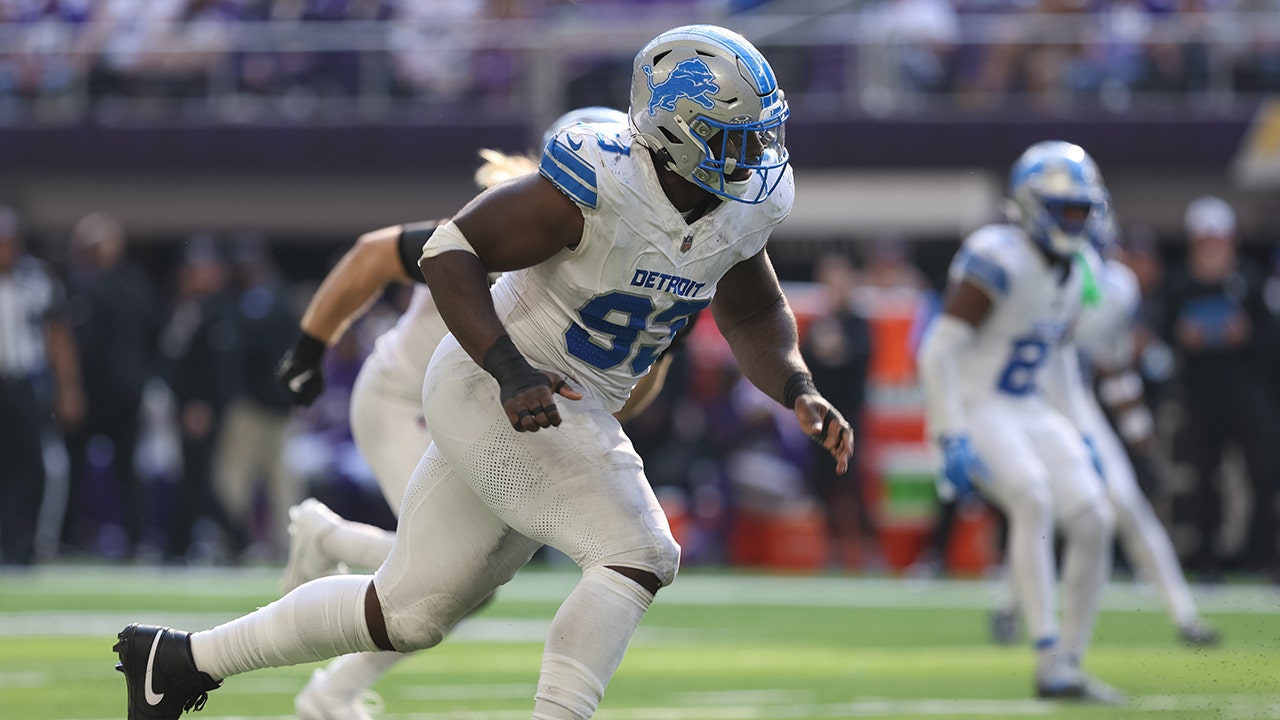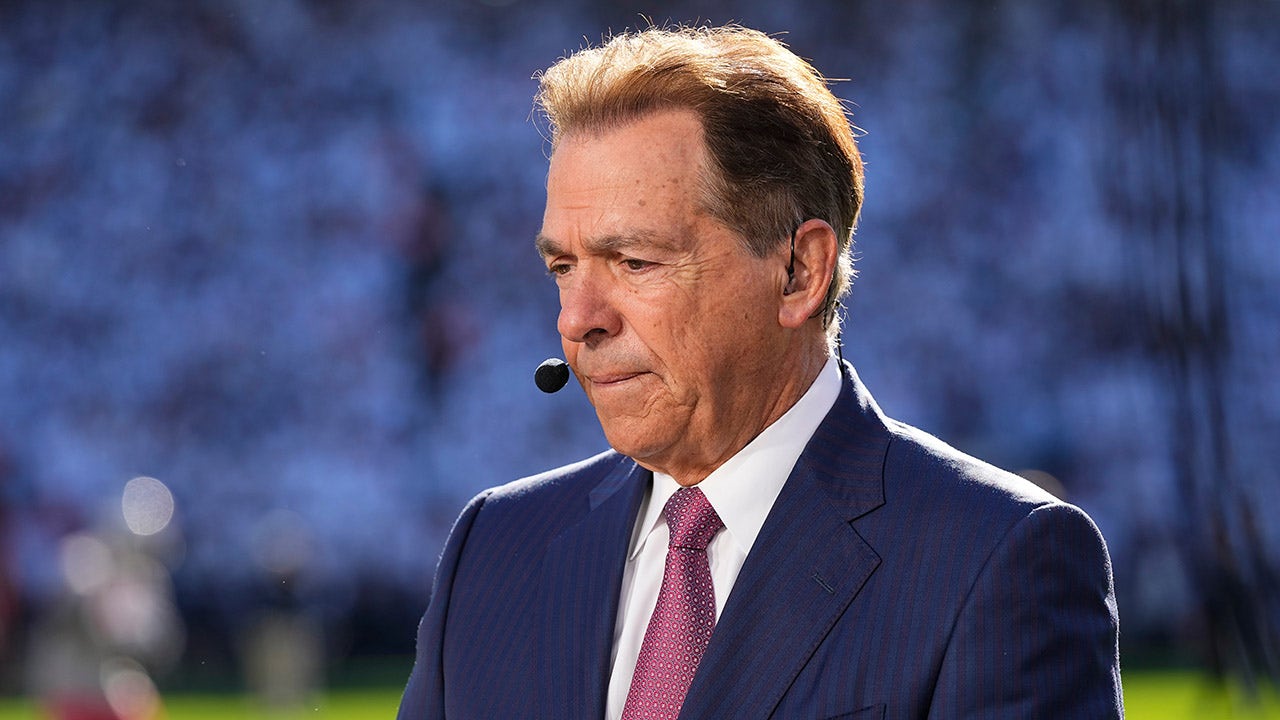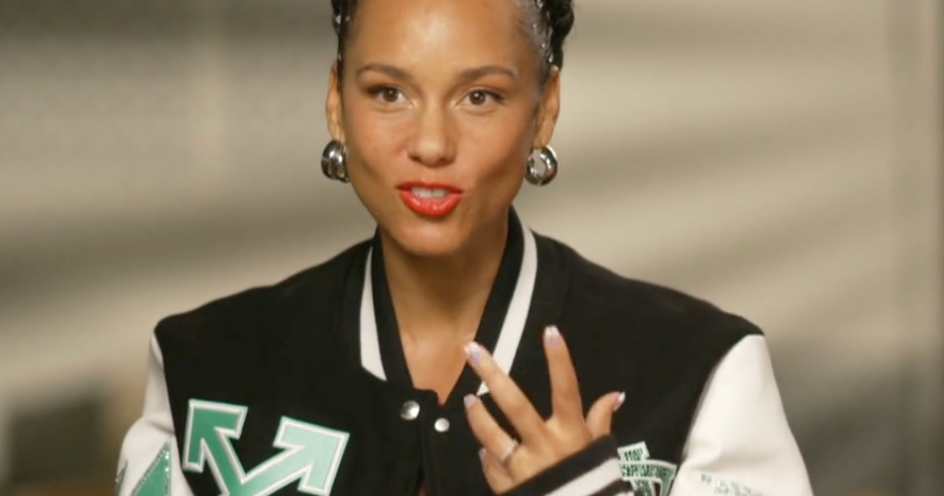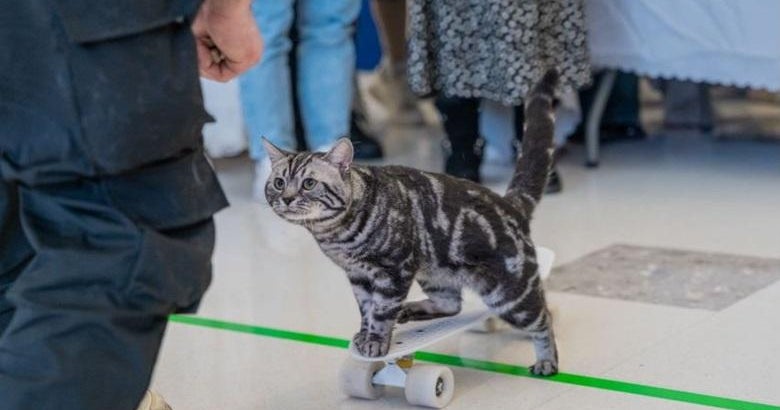The 2005 concept album is still applauded for its imaginative indie-folk take on Illinois (as a state, as an essence). The second album of Stevens’s “50 States” project (48 still remain), it’s often cited as one of the strongest albums of that decade. Spanning chamber, pop, rock and other genres, “Illinois” weaves historical and personal anecdotes with a playful honesty.
“Illinoise” (with an “e”), a staged interpretation by Jackie Sibblies Drury and Justin Peck, has a similarly epic quality. The piece is lush with theatricality, successfully using a harmony of elements to explore Stevens’s work. Upside-down pine trees are suspended above stage. A 14-person live band — with vocalists dressed in butterfly wings – is prominently featured on red scaffolding (the scenic design is by Adam Rigg). “Illinoise” is all-encompassing yet intimate, a testament to the delicateness and danger of Stevens’s work.
At the piece’s start, Henry (Ricky Ubeda) leaves the bed of his partner, Douglas (Ahmad Simmons), with a palpable grief. He quickly packs his things, including a journal adorned with a butterfly, throws on a pair of hiking boots and exits — later reentering the stage through a field of wheat strewn with gold light.
A clever use of props has transformed the set into a confessional campfire. Other dancers emerge dressed in outdoor gear and holding lanterns, orbs of lights and their own journals. They explore the campsite, a ritual set to Stevens’s jubilant “Come On! …” It’s an upbeat exaltation, as dancers jump and twirl to the song’s upswings and blaring trumpet.
A reworking of the remaining tracks (a brimming arrangement by Timo Andres) is set to stories shared around the campfire. With no written dialogue, Drury (a Pulitzer winner for the play “Fairview”) and Peck (the resident choreographer at the New York City Ballet) smartly use the vignettes to raise questions about connection, queerness and death.
Peck, the show’s director and choreographer, creates tension and longing through a manipulation of distance and touch. Dancers often repeat or build off one another’s movements to capture a sense of community, as seen in the tap dance duet set to Stevens’s folksy “Jacksonville.” The complex lyrics are difficult to fully capture from a story perspective. But Peck generates a conversation through explosive movements, punctuated by kinetic lighting (designed by Brandon Stirling Baker).
“Decatur, or, Round of Applause for Your Step-Mother!,” a stripped-down, banjo-led melody, moves through Henry’s friendship with and attraction to Carl (Ben Cook). Peck weaves childhood games into movement — tag, for instance — to emphasize intimacy, as dancers collapse into stillness, only to burst into play again.
“Casimir Pulaski Day,” eerily calm and devastatingly specific, captures the grief of terminal illness. The song’s opening lines are delivered with hushed forthrightness by the trio of superb vocalists (Elijah Lyons, Shara Nova, and TashaViets-VanLear): “Goldenrod and the 4H stone/The things I brought you when I found out/You had cancer of the bone.” Featured dancers turn and slip around each other, a repeated motif that is silky and haunting, a tense focus on yearning.
At times, “Illinoise” swerves into literalism when Stevens’s poeticism should linger. “The Man of Metropolis Steals Our Hearts,” a rocking, energetic thrash, is choreographed to dancers wearing Superman shirts (one even gets tossed into the crowd concert-style). While rousing, it’s a heavy-handed interpretation that doesn’t have the same subtlety as other scenes.
Similarly, “John Wayne Gacy, Jr.,” a strummed portrait of the infamous serial killer, is meticulously drawn but feels blunt when dancers enter wearing clown costumes. The quiet melody is puncturing, especially as the soloist dances to lyrics that turn inward: “And in my best behavior/I am really just like him/Look beneath the floorboards/For the secrets I have hid.” But the airy scene is weighed down amid the costumes, only becoming cathartic again when the vocalist Nova releases a shuddered breath.
“Illinoise” can also sometimes struggle with clarity during Henry’s narrative. Henry has one of the longest confessionals, revisiting his struggle with grief and love.
“Chicago,” the emotional indie rock classic about a road trip to the Windy City, narrates Henry’s relocation. But afterward, in the show’s second act, it becomes difficult to follow the literal events of “Illinoise” as other dancers enter and exit while portraying memories and dreams haunting Henry. Signposts of destinations like “Small Town in Middle of Nowhere” show the audience that characters are moving between places but only help so much.
Still, these are not huge marks on the genre-blending piece. Drury and Peck have crafted something cinematic, a true tribute to Stevens’s original brilliance.
Illinoise, through March 26 at Park Avenue Armory. 90 minutes with no intermission. illinoiseonstage.com.






